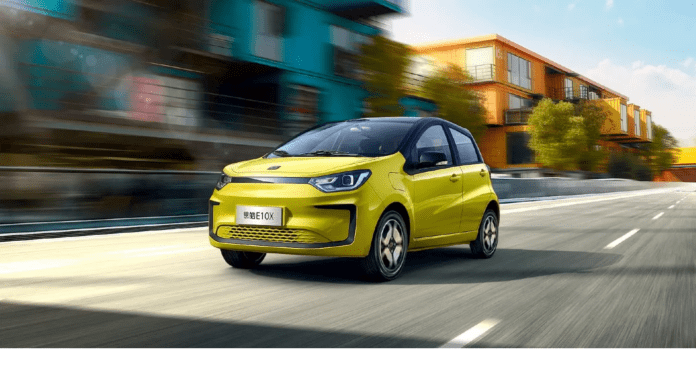Yiwei, backed by Volkswagen, launched its sodium-ion battery EV, the JAC Yiwei, which hit production on Wednesday.

Yiwei, a new EV manufacturer under JAC Group, established in 2023, is 50% owned by Volkswagen, with the remaining half being state-owned. In 2021, Volkswagen invested 1 billion euros for a 50% stake in JAC Group, gaining full control of its existing EV joint venture with a 75% stake.
The new EV incorporates sodium-ion cylindrical cells from HiNa Battery, affiliated with the Institute of Physics, Chinese Academy of Sciences, and employs JAC’s UE module tech with a honeycomb battery structure, akin to BYD’s Blade battery and CATL’s CTP technology.
Yiwei’s sodium battery-powered electric vehicle deliveries start next month.
JAC unveiled the Yiwei 3, its first sodium-ion EV, at the Shanghai Auto Show in February. Initially launched with an LFP battery, the promised sodium-ion version is now here. The Sehol E10X, powered by a sodium-ion battery, boasts 25 kWh capacity and 120 Wh/kg energy density, enabling 3C to 4C charging for a 10% to 80% recharge in 20 minutes.

Volkswagen handed over the Sehol brand to JAC in 2021. Recently, JAC announced that all vehicles will carry either a JAC or Yiwei badge. Despite lower energy density compared to lithium-ion, sodium-ion batteries, according to JAC, offer better low-temperature performance, faster charging, longer lifespans, and increased durability over time.
Notably, sodium-ion batteries use more affordable raw materials, potentially leading to lower EV prices. Yiwei Tech’s chairman, Xia Shunli, sees sodium-ion batteries as a crucial, cost-effective solution for widespread adoption of electric vehicles.




